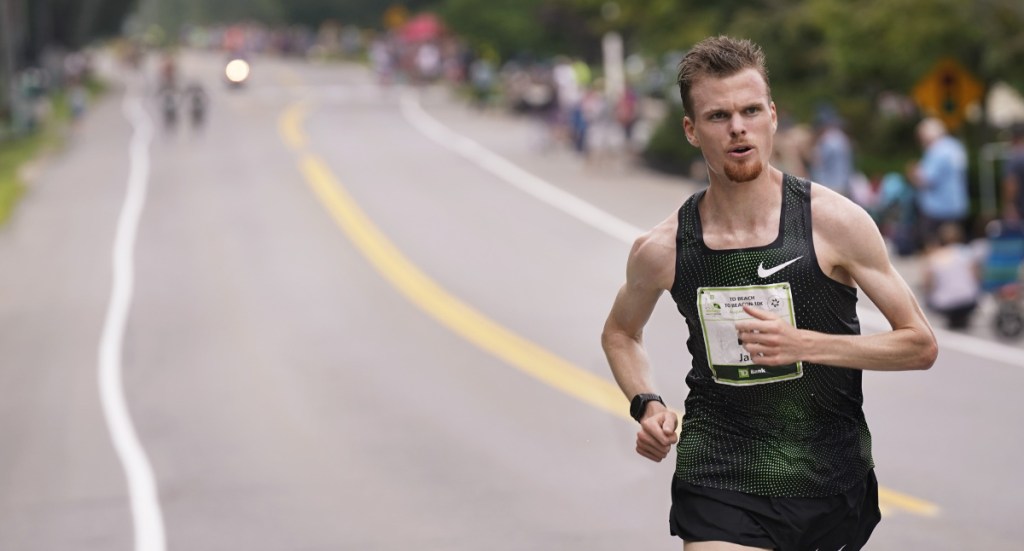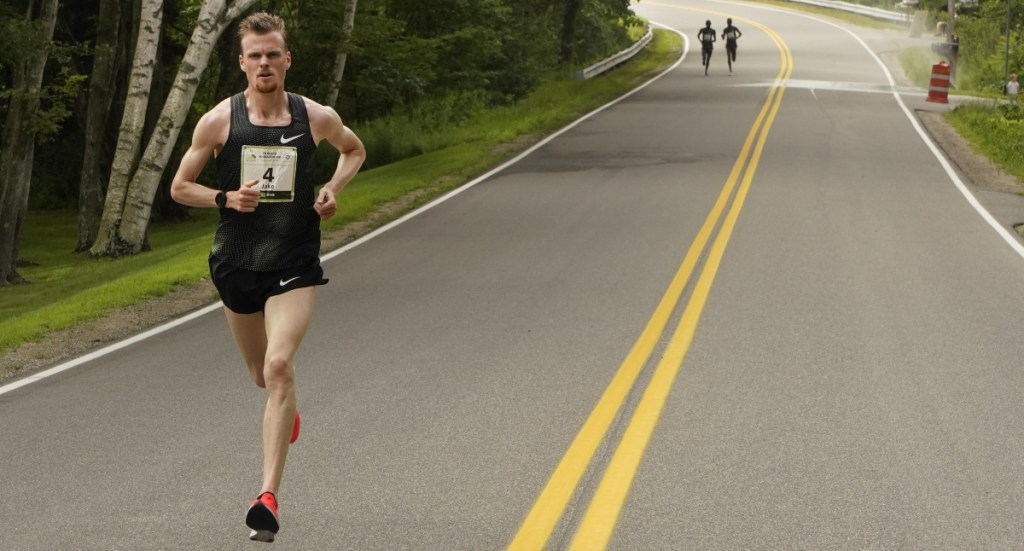CAPE ELIZABETH — The advice most often heard about running the TD Beach to Beacon 10K concerns the start, particularly when conditions are hot and humid: Don’t let the first mile’s gentle downslope entice you into running too fast, too early.
To which Jake Robertson replied, pfft.
The morning sun had just started to peek through leaden skies moments before the start of Saturday’s race when Robertson sidled up to Stephen Sambu of Kenya.
“He asked me if I’m ready to go with him from the start,” Sambu said. “I said, ‘OK, let me try.’ Then he ran like 4:15 (for the opening mile) and I was like, ‘That’s going to kill me.’ I’m not going to finish if I try to (stick with) him. I just let him go.”
Robertson, 28, is building a house in Iten, Kenya, where he has lived and trained since moving from his native New Zealand at 17 with his twin brother, Zane, in hopes of developing into world-class distance runners. Spurning the conventional route does not appear a difficult choice for him.
So despite temperatures in the low 70s and humidity approaching 90 percent, off Robertson went, audaciously daring the field to come with him. His lead at the first turn onto Old Ocean House Road was the largest in memory. He reached C Salt market before anyone else returned to Route 77. He covered Shore Road in isolation.
The final hills slowed Robertson, but he still broke the tape inside Fort Williams in 27 minutes, 37 seconds – tied for the third-fastest time in race history. The 50-second gap until Sambu arrived, with the hard-charging Ben True close behind, marked the largest winning margin in the 21 years of the Beach to Beacon.
“I’m happy, just to be fearless and deliver,” Robertson said. “If you set your mind to doing something and you believe in yourself and you can deliver, you feel good.”
Robertson earned $10,000 as well as the distinction of being the second non-African man to win the race. True, a North Yarmouth native who now lives in West Lebanon, New Hampshire, broke the streak of African domination two years ago and placed second last August.
On Saturday, True reeled in Shadrack Kipchirchir in the last 300 meters after making the turn into Fort Williams but couldn’t quite catch Sambu, who was clocked at 28:27. Sambu earned $5,000 for second, while True (28:29) pocketed $3,000 for third and another $5,000 as the top American.
“The time he put up today is ridiculous,” True said of Robertson, who reached the halfway mark in 13:30, putting him on pace to shatter Gilbert Okari’s 2003 course record of 27:23. “He had 10 seconds on me in the first mile. I knew I had to run my own race.”
Robertson acknowledged the crowd in both directions before placing his palms together above his head as he broke the tape.
Robertson fell to his hands and knees shortly after completing his run. He entered the medical tent as a precaution but needed no immersion ice bath, just a toweling down. When questioned about a time that seemed such an outlier on a morning when the rest of the field was the slowest in race history, he pointed to the terrain of his high-altitude training base in Iten.
“My time wasn’t that incredible,” he said. “I’ve just been prepared. Honestly, they consider this a hilly course, but where I train this is nothing compared to that.”
Worldwide, the specter of doping by endurance athletes raises eyebrows nearly ever time a record is approached or broken.
“No insinuations,” True said, “but there’s enough prize money and this race is old enough now that there’s no excuse why there’s not drug testing here. I definitely think that’s something this race needs to have at this point.”
Dave McGillivray, the race director, said Beach to Beacon last tested three or four years ago. The decision on whether to do so is made on a yearly basis.
“It isn’t just because of the expense, but there is an expense involved, too,” he said. “What’s really effective is the out-of-competition testing done by (the World Anti-Doping Agency).”
Robertson said he understands how a spate of recent athletes being suspended for doping can cast a pall over the entire sport.
“I like to believe that everybody has their day,” he said, “and the clean athlete can win the race as long as he’s prepared well.”
Glenn Jordan can be contacted at 791-6425 or
Twitter: GlennJordanPPH
Send questions/comments to the editors.




